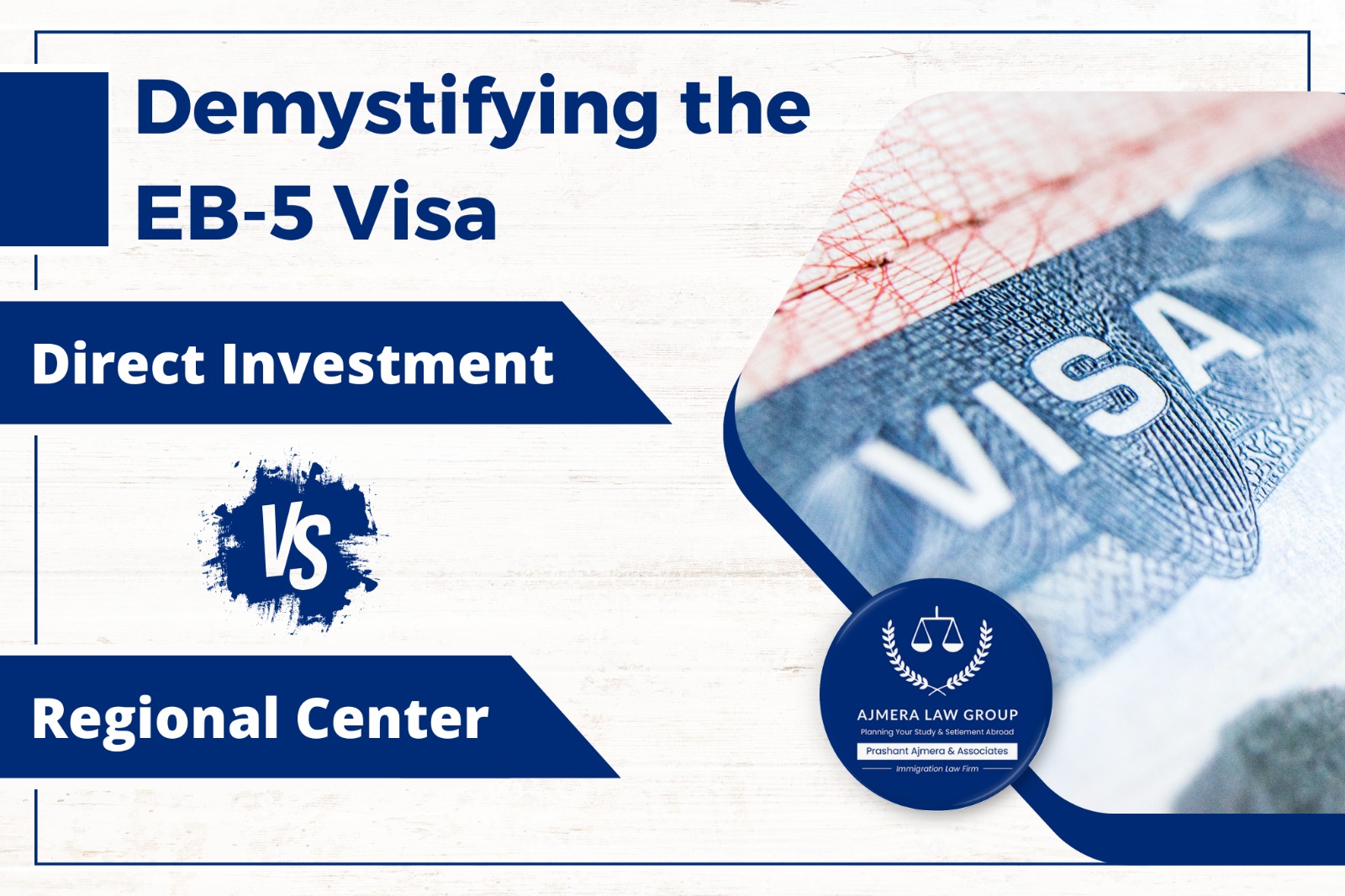What Questions to Ask When Making an EB-5 Investment for a USA Green Card?
Investing in an EB-5 project is a significant decision for obtaining a U.S. green card.
As with any large investment, thorough research and due diligence are essential.
Here are some crucial questions investors should ask before committing to an EB-5 project:
- What is the name of your regional center, and do you own or rent it?
Understanding the ownership structure of the regional center is important. Some regional centers rent their license from others, which can complicate oversight. USCIS compliance and accountability.
- Has this regional center complied with the new EB-5 rules?
In March 2022, new EB-5 regulations were introduced. It’s critical to confirm that the regional center complies with these updated rules.
- Has USCIS approved the regional center’s compliance with the new rules?
Ask if the regional center has been officially approved by USCIS under the new regulations. This ensures their legitimacy and adherence to updated requirements.
- Has USCIS approval for the project been received?
If not, inquire when the project petition was filed and when it will be approved. A project without USCIS approval may pose higher risks and EB5 petition cannot be submitted.
- How many projects has the regional center completed, and what is the success rate of each project?
Reviewing the regional center’s past performance can give insight into their success rate, both in terms of financial returns and the issuance of green cards to investors.
- Who are the project promoters, and what is their background and experience in the EB-5 industry?
Understanding the background, experience, and track record of the project promoters is critical. It’s essential that they have a solid understanding of EB-5 rules and regulations, as well as a history of managing successful projects.
- What is the percentage breakdown between bank loans, promoter equity, and EB-5 funds?
A sound financial structure is key to reducing risk. Clarifying how much of the project is funded by bank loans, the promoter’s own equity, and EB-5 investor funds will give a clearer picture of the project’s stability.
- How many jobs will be created per investor?
Each EB-5 investor must create at least 10 jobs to qualify for the green card. Ensure that the project has a solid job creation plan that meets or exceeds this requirement.
- Who is your immigration lawyer?
The immigration lawyer’s expertise in EB-5 filings can significantly affect the success of your petition. Ensure that the project is represented by a lawyer with proven experience in the EB-5 process.
- Who is the economist for the EB-5 project?
An economist plays a key role in analyzing job creation and ensuring the project meets EB-5 requirements. Make sure the economist is reputable and experienced in the EB-5 space.
- Who is your securities lawyer for the EB-5 project?
A securities lawyer ensures that the project complies with U.S. securities laws, protecting your investment from legal issues.
- Who will manage the escrow account?
The management of the escrow account should be handled by a reliable third party. This account ensures that your investment is safeguarded until the project meets certain benchmarks, such as USCIS approval or job creation.
- When does the regional center intend to refund the investment?
It’s important to get a clear timeline on when the regional centre plans to return your investment, especially if the project does not meet the necessary criteria or if your EB-5 petition is denied. Is refund in fill, partial or any penalty of charge for a refund?
Investing in a friend’s or relative’s project in the USA can be a viable option, provided you feel comfortable asking critical questions and receiving transparent answers.
By asking these questions, you can gain greater confidence in the EB-5 project you’re considering and ensure that your investment leads to both a green card and a secure financial future.
The author of this article is Mr. Prashant Ajmera, an Indian immigration lawyer and Canadian citizen. He is the founder of Ajmera Law Group and the author of two books, “Millionaires On The Book” and “How to Plan for Your Child’s Foreign Education.” Over the past 30 years, he has assisted and advised over 30,000 students and families on planning their foreign education and settlement. He regularly speaks at various forums on this subject.
Ajmera Law Group: Mo: +91 9974253030 | info@ajmeralaw.com | www.ajmeralaw.com



